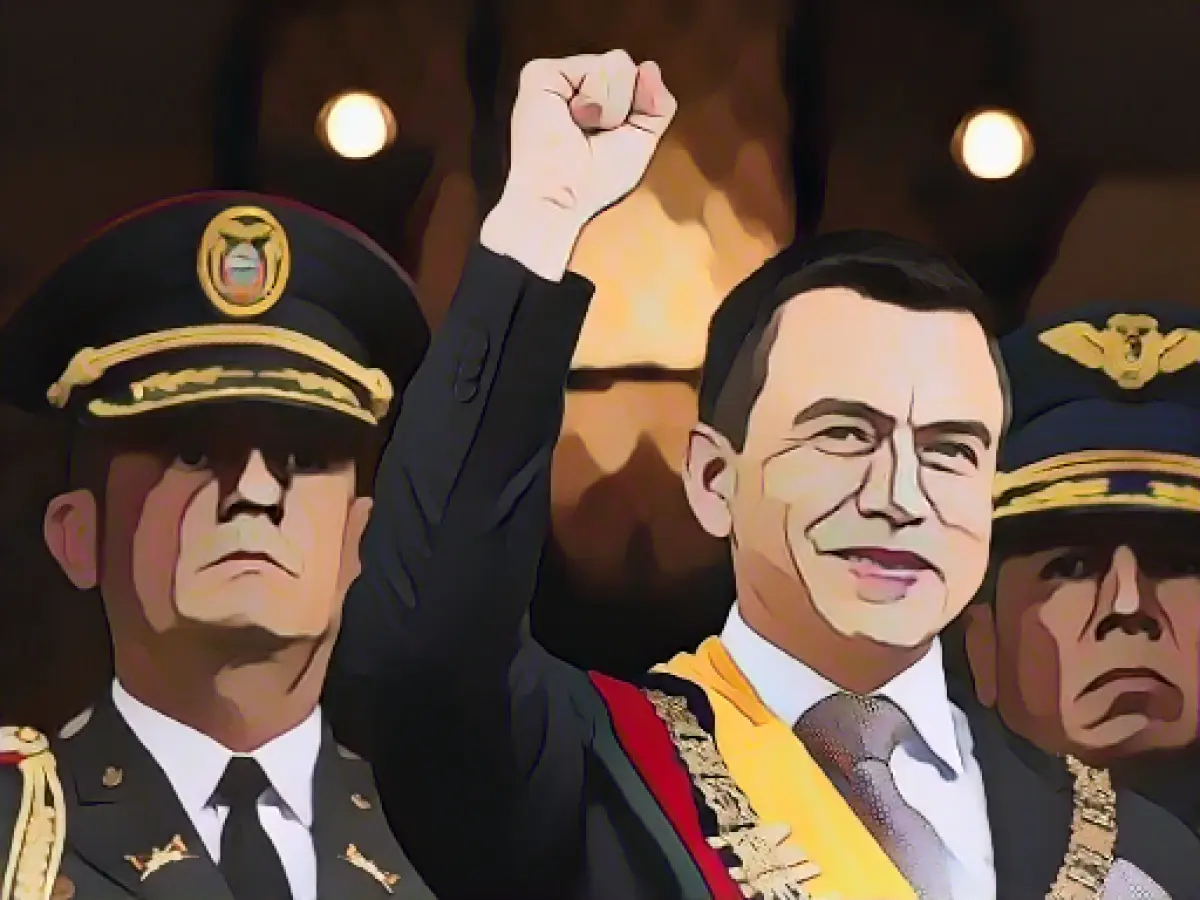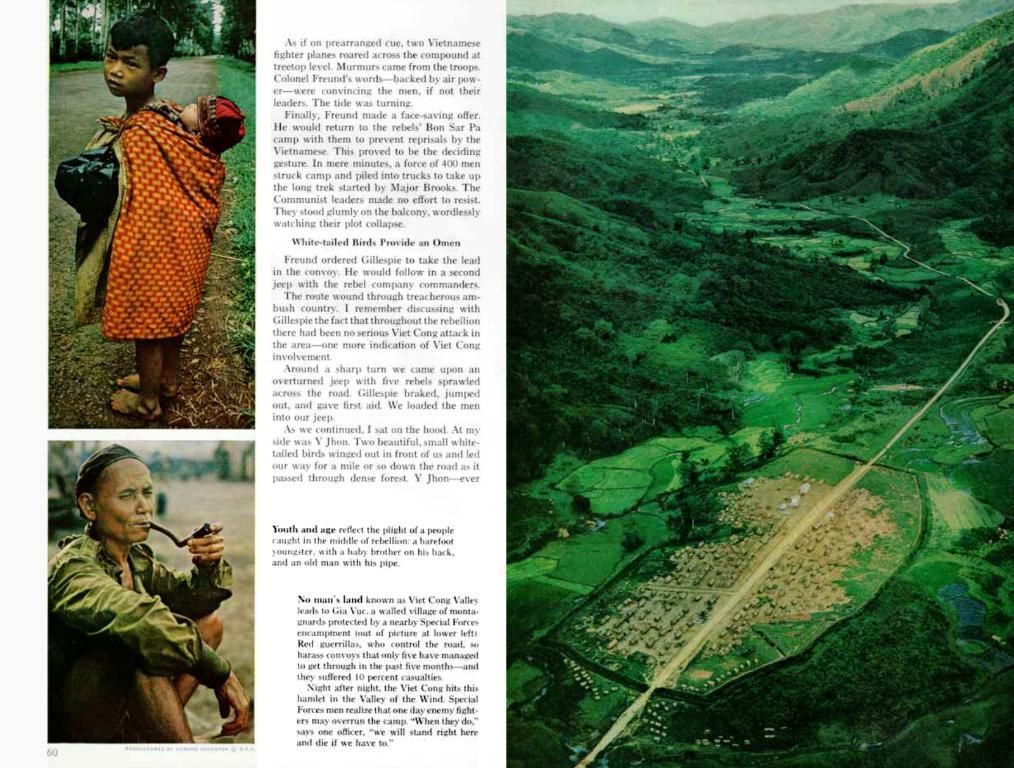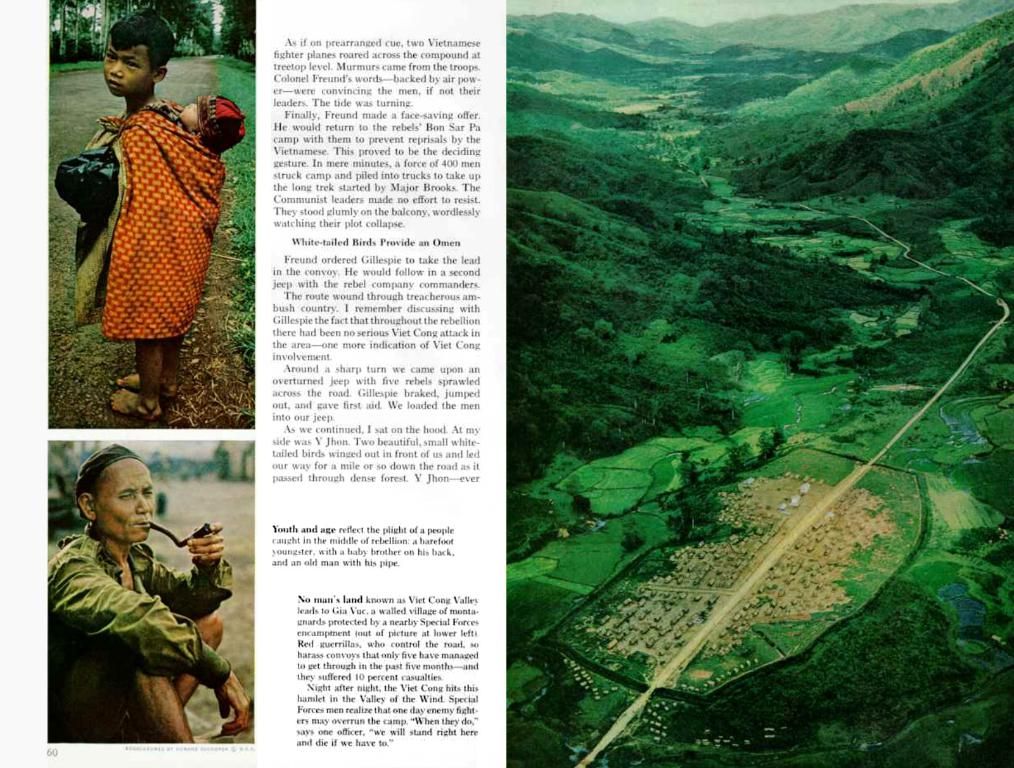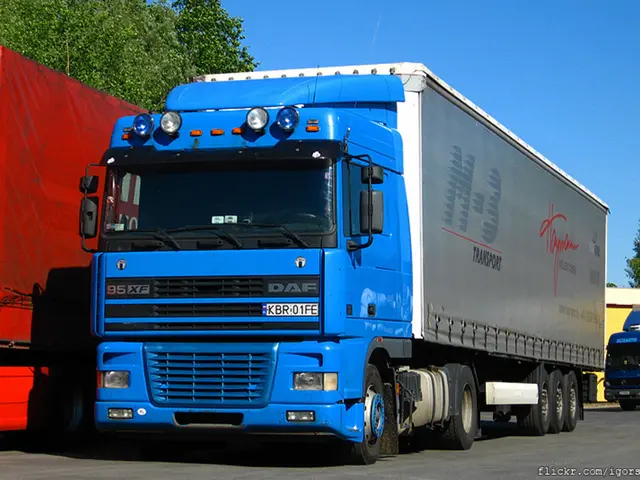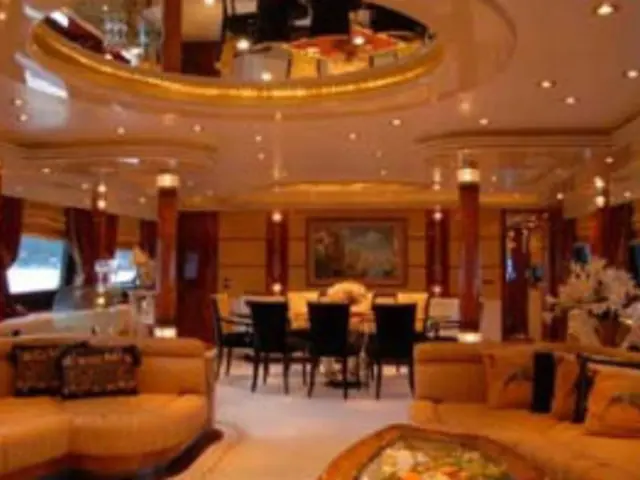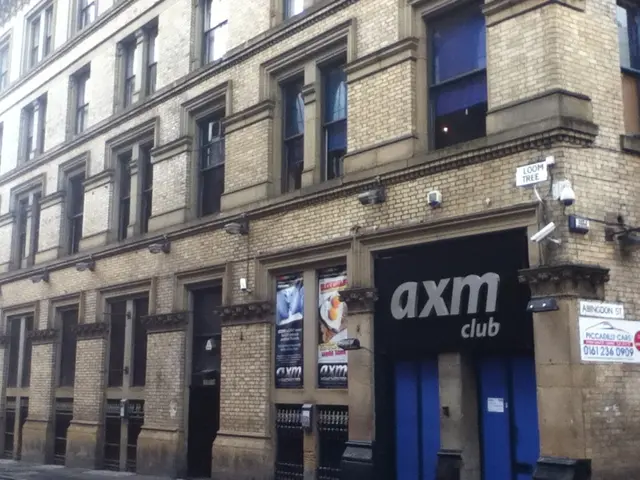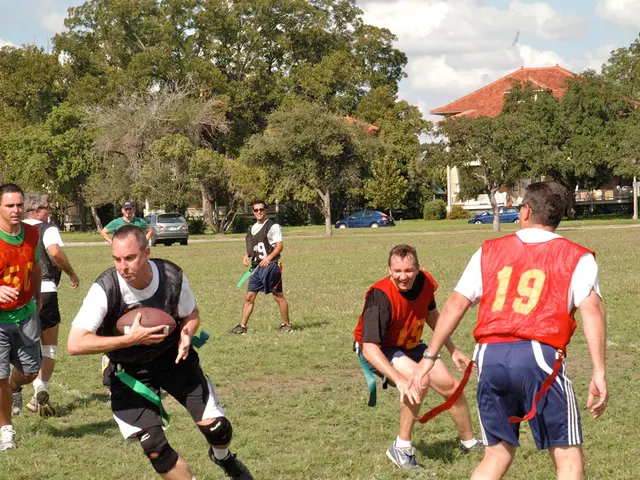Ecuador's Youngest President Tackles National Crisis
During his inauguration on Thursday in Quito, Daniel Noboa, aged just 35, officially became the youngest democratically elected head of state in Ecuador's history. The son of banana tycoon Álvaro Noboa, who had previously contested the presidency five times, pledged his commitment to forging a path away from political and ideological categorizations and towards progress. His tenure will last until May 2025, filling the vacant position left by the premature departure of President Guillermo Lasso.
Sadly, the Latin American country grapples with its most critical issue – the country's alarming security situation. Last year's staggering murder rate, which stood at about 25 homicides per 100,000 inhabitants, reached an all-time high in Ecuador's history and placed it among the most dangerous countries in Latin America. Just before the elections, presidential candidate Fernando Villavicencio, who dedicated his campaign to fighting corruption, tragically lost his life after an election rally.
Several dangerous gangs, whose power extends to prominent Mexican cartels, contend for control over Ecuador's drug trafficking routes – making it an essential channel for smuggling cocaine to both the United States and Europe.
With crime and public safety at the forefront of their concerns, citizens look to the newly elected Ecuadorian government, headed by President Noboa, to take decisive action.
Enrichment Insights:
- Military Crackdown on Drug Cartels: In the initial stages of Noboa's presidency, the country witnessed a significant reduction in homicides, with around 16.5% fewer violent deaths reported in 2024 compared to 2023[1]. The administration attributed this drop to a military crackdown on drug cartels, acting under the pretext of declaring an internal armed conflict against organized crime.
- Increased Militarization: To control the mounting crime wave, the newly formed government has adopted the "Phoenix Plan" – a strategy that involves deploying troops to streets and arresting thousands of suspected gang members. Fueled by the desire to reduce the homicide rate, this approach is part of President Noboa's "mano duro" (iron fist) policy[3][4].
- Aggressive Security Strategies: Noboa's administration has implemented severe measures, including increased militarization and aggressive security strategies, to tackle the spiraling crime situation. However, these efforts have not entirely conquered the security crisis, with homicides consistently on the rise at the beginning of 2025, despite initial promises of improvement[2][4].
- Investment in Social Programs: To address the root causes of crime, some presidential candidates, such as Luisa González, advocate for investing in social programs focusing on crime reduction in poor areas and discouraging gang involvement due to economic necessity. The proponents of this alternative approach believe that militaristic methods alone are not sufficient to curb the crime wave[2].
- Corruption Challenges: Law enforcement and judicial institutions in Ecuador face corruption issues that help legitimize criminal networks and destabilize security efforts. The pervasive corruption in these institutions exacerbates the security situation, a problem that requires significant governmental attention[5].
- Economic Instability: The nation's unstable economy, which contracted in the third quarter of 2024, further challenges the Ecuadorian government's efforts to improve the security situation and reduce crime levels. Addressing these economic problems is critical for the government to foster a stable and secure environment[5].
As the Ecuadorian government grapples with these challenges, the fate of the dangerous labyrinth of crime, corruption, and economic instability remains uncertain. President Daniel Noboa now stands at the helm, with a seemingly daunting task ahead. Only time will reveal if his young leadership will be able to crack down on crime and restore peace to the country.
